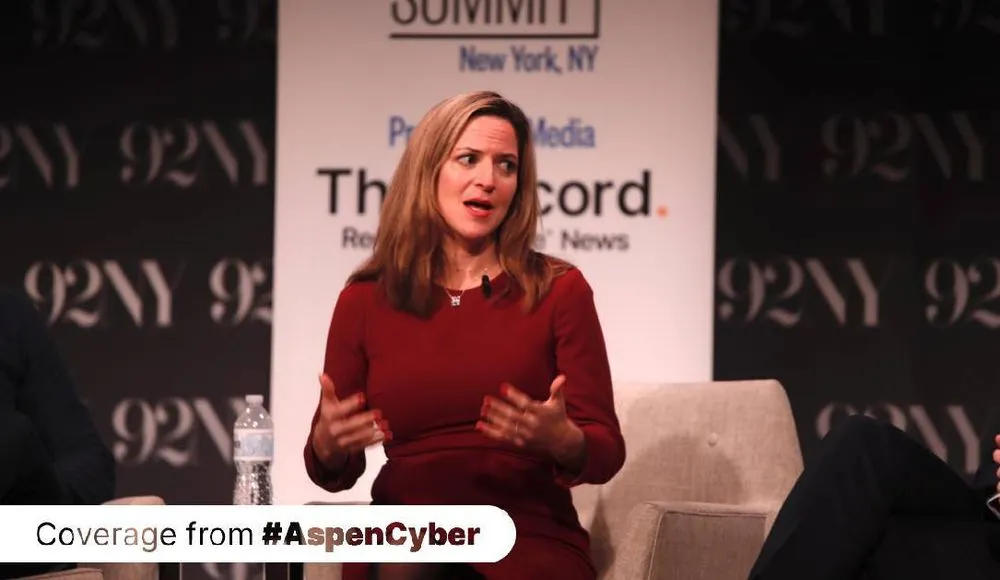AI-generated disinformation a top concern for 2024 elections, Michigan secretary of state says
Michigan Secretary of State Jocelyn Benson said Wednesday that one of her top worries about the 2024 elections stems from the potential for artificial intelligence to foment what she called “hyper-localized” dissemination of mis- and disinformation.
“Imagine on election day, information goes out about long lines [in a given precinct] that are calling for violence that is false, but it's generated through artificial intelligence,” Benson said during an interview at the Aspen Cyber Summit in New York.
Michigan, she said, is arming itself to fight back against such threats. Benson pointed to the recent passage of state legislation requiring disclosure of any artificially generated media about elections and criminalizing the intentional use of deep fake videos to trick voters.
Benson worries particularly about the potential AI-generated disinformation could have for inciting violence at poll sites, saying that thanks to AI disinformation and calls for violence will be spreading “further and faster.”
Others on the panel echoed Benson’s concerns about violence and an election process saturated with disinformation.
Former Cybersecurity and Infrastructure Security Agency Director Chris Krebs said the “thing that makes the hair on the back of my neck stand up” is how motivations and incentive structures have shifted for nation states considering meddling in elections, both from an engineering perspective and given the relative ease of executing disinformation campaigns.
On a panel focused on election security overall, disinformation was the focus. “The mechanism through which the security of our elections is damaged isn't necessarily the hardware or software,” Benson said. “It's the confusion or chaos or the sense of division and the sense of disengagement that bad actors are very much trying to instill in our citizenry.”
In its recently published threat assessment for 2024, the Department of Homeland Security highlighted the risks of generative AI being used in disinformation campaigns targeting the elections, citing recent examples of actors connected to the Chinese and Russian governments spreading AI-generated propaganda.
Suzanne Smalley
is a reporter covering digital privacy, surveillance technologies and cybersecurity policy for The Record. She was previously a cybersecurity reporter at CyberScoop. Earlier in her career Suzanne covered the Boston Police Department for the Boston Globe and two presidential campaign cycles for Newsweek. She lives in Washington with her husband and three children.



